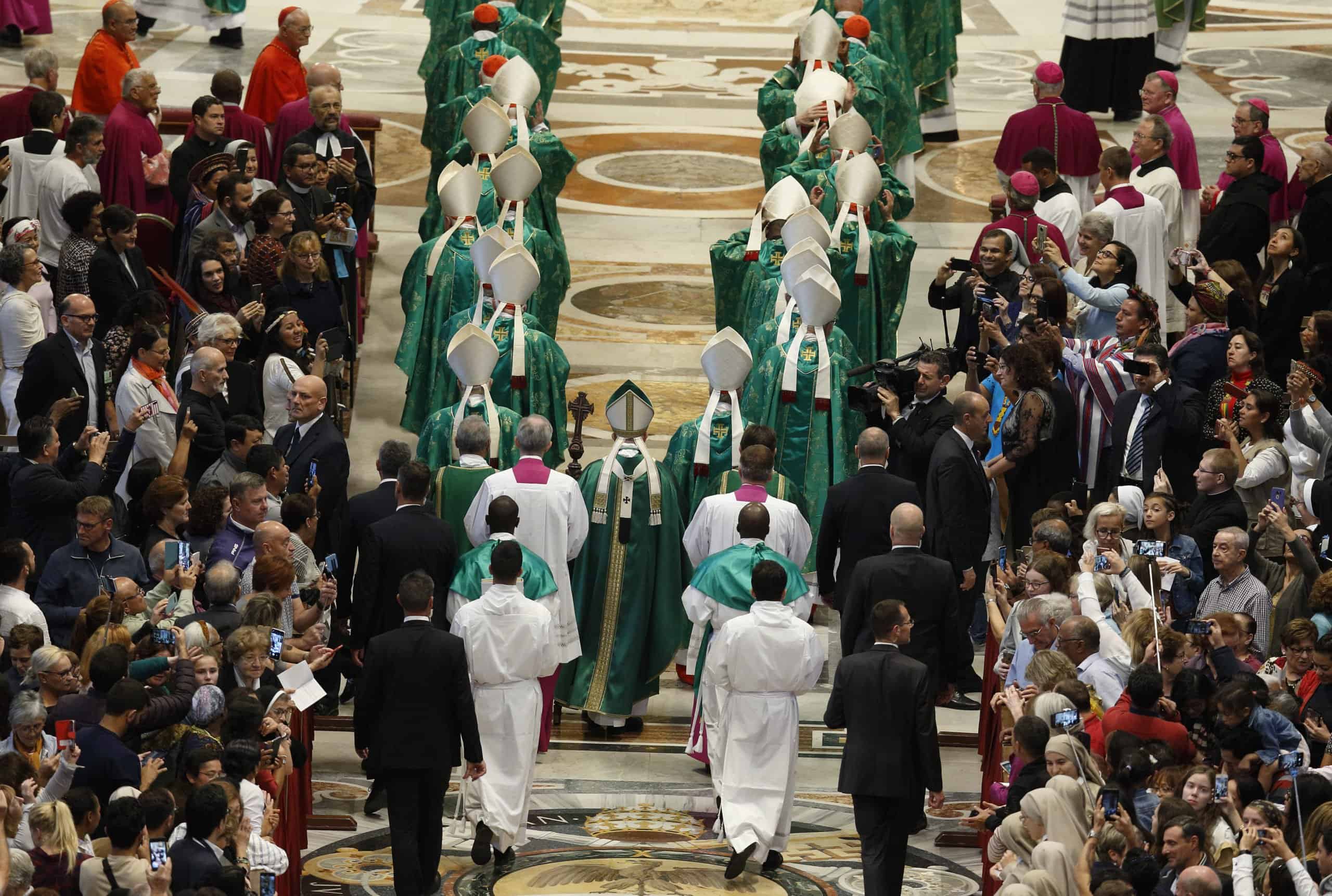Surely, you’ve already seen the headlines and the great racket they made. Pope Francis released his response to the “Amazon Synod” last week, and (for now) he hasn’t addressed the two headline issues: married clergy and women deacons.
You may be disappointed. You may be relieved. I won’t presume to know what your reaction was, but I will tell you mine.
I was surprised Francis didn’t take drastic steps. The case for ordaining viri probati seemed strong looking at regional history, and the synod bishops’ recommendation seemed to make it stronger. The bishops also requested that women take greater leadership roles, something Francis himself has said. Regardless, in his reflection on the synod fathers’ recommendations, neither issue made an appearance. Great expectations have led to great disappointments for many, and great relief for others.
After the release of the exhortation, Francis was frank with a group of U.S. bishops making their ad limina visit in Rome. He commented on his own discernment, the key to Ignatian decision-making. As one archbishop summarized his remarks: “I haven’t sensed that the Holy Spirit is at work in that right now.” As most media outlets have reported on Querida Amazonia, Francis seems to have said no to the two controversial proposals.
But if his discernment was authentic, it is not Pope Francis, but the Holy Spirit who has said no. Despite the great need, the Holy Father has discerned it’s not God’s way forward from this synod. I wrote in July 2019 that two questions were before us, and I find both relevant still: “Can we think with the Church? Can we accept the insistent movements of the Spirit?” Pope Francis has accepted the movement of the Spirit. His apostolic exhortation invites us to respond to the first question.
What is the Church thinking? The synod itself allowed us to peer into the concerns and ideas of the Amazonian Church more than has ever been possible from so far away. The Church — bishops, priests, religious men and women, catechists, and indigenous communities — is deeply worried about exploitation and injustice, about cultural colonialism and forced migration, and about the right to hear the Gospel and growing in holiness.
The Amazonian Church wishes to take the steps to live more faithful to Christ. Yet fixations on accusations of idolatry and threats against priestly celibacy competed for headlines and tweets, turning the synod into a spectacle for those not present. It was nigh impossible to hear the voice of the indigenous communities and missionaries over the furor.
Perhaps pushing against this distortion and respecting the bishops’ voice, Francis reflects on but does not overwrite the synodal document. He encourages everyone “to read it in full,” but refuses to speak for the bishops of the region (Querida Amazonia 3). Instead, he amplifies their voices as he draws direct lines from the heart of Christian faith — that Christ took on our flesh and our nature — to the Church’s ministry today.
He also refuses the proposition that the Church should simply mitigate the problems in the Amazon. Damage control and maintenance are no way to live as Christians. Instead, he dreams of social, cultural, ecological, and ecclesial flourishing. He wagers that if we contemplate the Amazon “in all its splendour, its drama and its mystery,” it will produce better fruit than our fear or anxiety can (Querida Amazonia 1).
As he writes, “How can we not struggle together? How can we not pray and work together, side by side, to defend the poor of the Amazon region, to show the sacred countenance of the Lord, and to care for his work of creation?” (Querida Amazonia 110).
Francis’s response, I think, is faith doing relevance in the best way. Rather than allowing relevance to dictate the next steps to faith, the incarnation — Jesus’ and the Church’s life among us, in our own reality and culture — will determine our next steps. The Gospel can take root in the Amazon, even in the midst of the great challenges faced by the region. As Francis indicates, we respond better to those challenges by living the Gospel well, not by finding the more convenient path to walk.


